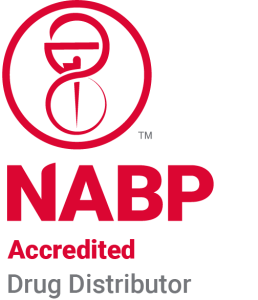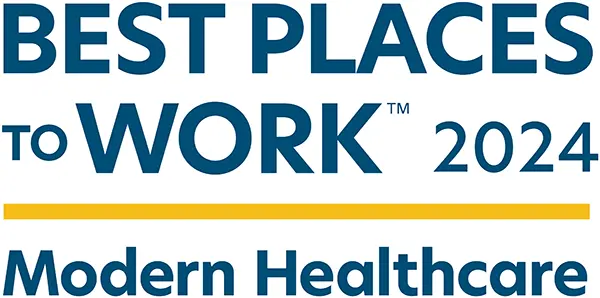Improving Patient Medication Adherence
Unlock better patient outcomes! Contact IPC today to learn more and take the next step toward a stronger, more impactful health outcomes!


Help My Pharmacy Performance
PSAO’s provide quarterly data on pharmacy’s performance. Help meet with pharmacies to know they have opportunities for improvement.
We work with partners like your PSAO, Outcomes, and PQS to help our members identify money they are leaving on the table through enhanced service programs and pay for performance programs. To find areas where you can find metrics to improve your reimbursement rates.
IPC pharmacy services help pharmacies to identify areas of improvement.
- Improve workflow.
- Walk through EQUIPP Platform and how to navigate properly.
- Help Identify $$$ left on table through Pay for performance and enhanced service programs.
- Bring pilot programs to our membership with our relationship to payors.
Ex: United Health Group (Michigan) United Healthcare Community Plan of Michigan Enhanced Service Program: To help independent pharmacies find opportunities to maximize reimbursements through optimized workflows and implementing.
Connect with IPC
Unlock better patient outcomes! Contact IPC today to learn more and take the next step toward a stronger, more impactful health outcomes!
Medication Adherence
Help the pharmacy with workflows to help improve patient medication adherence. Help your pharmacy quickly identify areas of improvement that can help your reimbursement rates.
Identify payors that need improvement, walk through EQUIPP platform to know how to identify patients that are affecting performance scores which are affecting reimbursement rates.
Why is it important to improve patient medication adherence & what can it mean for your pharmacy?
Improving patient adherence measures in pharmacies involves a multi-faceted approach that combines patient education, technology, personalized care, and effective communication.
- When patients take their medications as prescribed, they experience improved health outcomes. Adherence leads to better symptom management, reduced complications, and overall well-being.
- Non-adherence results in wasted medications, unnecessary hospitalizations, and increased healthcare costs. By promoting adherence, pharmacy owners can help patients avoid preventable expenses.
- Patients appreciate personalized support and education on medication use. When pharmacists actively engage with patients, it enhances their satisfaction and trust in the pharmacy.
- Adherence impacts pharmacy quality metrics, such as Medication Possession Ratio (MPR) and Star Ratings. High adherence contributes positively to these metrics, which can affect reimbursement and contracts.
- A pharmacy known for its commitment to patient care and adherence attracts loyal customers. Positive word-of-mouth and online reviews can boost the pharmacy’s reputation.
- Pharmacists have a duty to ensure patient safety. Promoting adherence aligns with this responsibility and demonstrates ethical practice.
Here Are Some Strategies to Enhance Medication Adherence:
Patient Education
Your pharmacy can provide simple, understandable instructions on how and when patients can take their medications. Use of brochures, videos, and digital resources to educate patients about their medications. Offer medication guides and pill organizers to help patients understand their regimen and remember to take their medications. Organize educational workshops for your community on managing chronic conditions and medication adherence.
Medication Synchronization
Align medication refill dates so patients can pick up all their prescriptions at once. This reduces the number of visits to your pharmacy and helps patients stay on track with their medication schedule. Implement automatic refill services to ensure patients receive their medications on time without having to remember each refill date.
Adherence Tools and Technology
- Utilize phone calls, text messages, or email reminders to prompt patients about upcoming doses or refills.
- Recommend or offer an app that tracks medication schedules, provides reminders, and allows for easy communication with the pharmacy.
- Provide pre-packaged medications in blister packs or use medication organizers to simplify complex regimens.
- Conduct regular Medication Therapy Management (MTM) sessions to review medications, address side effects, and assess adherence.
- Develop individualized medication management plans based on the patient’s specific needs and health conditions.
Patient Engagement
Encourage patients to discuss any issues or concerns about their medications to foster a supportive environment where patients feel comfortable asking questions. Use motivational interviewing techniques to explore and address barriers to adherence and enhance patient motivation. Examples of questions may include:
- “What is important to you?”
- “How do these behaviors conflict with your values?”
- “How would you go about making this change?”
- “How does substance use conflict with your goals?”
- “What does change look like for you?”
Follow-Up and Support
Schedule follow-up calls or visits to monitor adherence, address any problems, and reinforce the importance of following the medication regimen.
Personalization
Customize your communication and interventions efforts based on the patient’s health literacy, preferences, and needs. Ensure that education and support are culturally sensitive and address any language or cultural barriers.
Address Barriers to Adherence
Provide information to your patients about assistance programs or generic alternatives to help with medication costs. Assist with addressing any issues related to medication access, such as transportation or pharmacy location problems.
Collaboration with Healthcare Providers
Work closely with your community’s physicians, nurses, and other healthcare providers to ensure a coordinated approach to medication management and patient care. Align medication adherence goals with the patient’s overall health goals and treatment plan.
Track and Analyze Adherence Data
Use adherence metrics to track patient progress and identify trends. Regularly review this data to refine strategies and improve adherence rates. Gather feedback from patients about their experiences and challenges with medication adherence to inform and adjust practices.
Implementing these strategies, allows your pharmacy to enhance patient adherence, improve health outcomes, and support overall patient well-being. Effective medication adherence management is crucial for optimizing therapeutic outcomes and minimizing healthcare costs.
Connect with IPC
Unlock better patient outcomes! Contact IPC today to learn more and take the next step toward a stronger, more impactful health outcomes!







 by
by